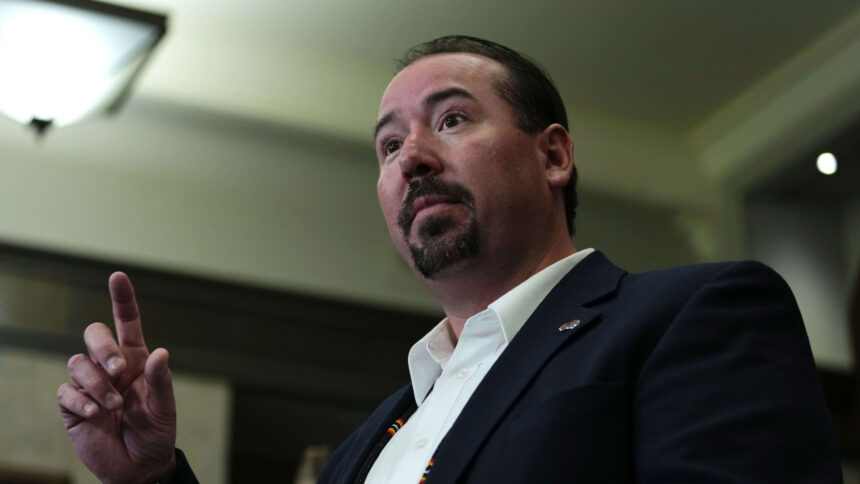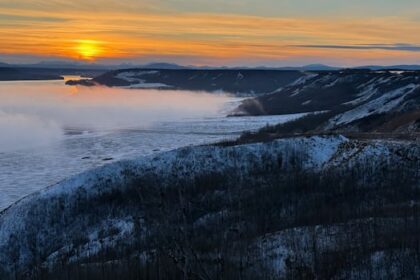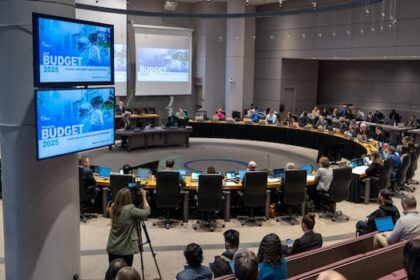The head of the Chiefs of Ontario (COO) says the Liberal government needs to live up to its promise to reintroduce legislation that will make clean water in First Nations communities law. “We’ve seen a pledge from the government previously to end boil water advisories, essentially bring clean drinking water to First Nations communities. There has been some progress made, but sadly, as this progress has been very slow,” said Abram Benedict, grand chief of the COO on the latest episode of Nation to Nation. “One thing that I reminded her though is that the government needs to live up to the obligations of nation to nation, needs to live up to UNDRIP (United Nations Declaration on the Rights of Indigenous Peoples) under all the conventions that exist, around nation building and government nation to nation relationships.” Minister of Indigenous Services Mandy Gull-Masty attended a meeting of regional chiefs last week and told them that clean drinking water legislation will be reintroduced. APTN News has also been checking in with Gull-Masty’s office regarding the legislation. Each time we were told that nothing is ready. Benedict’s comments come in the wake of a scathing report from the auditor general, which found Indigenous Services Canada had failed to satisfactorily implement 18 out of 34 recommendations made over the past decade across six audit reports. Auditor General Karen Hogan delivered a scathing report on Indigenous Services Canada, that covered several topics, but singled out clean drinking water as a key failure. “More than half of the recommendations didn’t have satisfactory progress on them,” said Hogan. “Now, the most important, I think, is drinking water.” “If you want to support reconciliation, you have to get those programs over into First Nations communities.” One of the critical missing pieces is a regulatory regime. “And what that does is it sets exactly what safe drinking water should look like compared to other parts of the country. And then it gives First Nations a legally enforceable way to say, ‘Hey, we need to have better safe drinking water. How do we get there?’” explains Hogan. As of April 2025, when the report was originally handed to the government, 35 long-term drinking water advisories remained in effect—nine of them more than a decade old. Since the audit was completed, that number has risen to 38. Most are in Ontario. More: Indigenous Services Canada fails to deliver on most promises, says auditor general ‘Ontario has no business getting involved in Bill C-61’ says Nishnawbe Aski Nation A bill that was making its way through Parliament was meant to address that. But it died on the order table when parliament was prorogued in January 2025. What happened to Bill C-61, the proposed clean water act? Bill C-61 was developed through a co-drafting process with First Nations. According to Benedict, it “got pretty close to the end of the finish line,” but stalled just as it reached the Senate. “There were some things that were removed at the end that we were not favorable of, specifically around source water protection because I mean, you can have all of the robust systems you want, but if we don’t have the ability to protect the source where the water comes from, it becomes a bit of quite more challenging for our communities.” “It had been delayed by the Conservatives. And I want to make that very clear.” he added, saying if it had not been held up in debates, it could have passed into law last year. “It was just entering the Senate process when the government prorogued and we lost that legislation.” Starting in September, the Conservatives stalled debate in the House of Commons over the Liberal environmental programs leaving other issues on the sidelines. The absence of legislation leaves First Nations communities without legally enforceable drinking water protections—unlike municipalities across the country. According to the draft, Bill C-61 would have affirmed “the inherent right of First Nations to self-government, which includes jurisdiction in relation to water, source water, drinking water, wastewater and related infrastructure.” It also stated the goal of ensuring “reliable access to a sufficient, adequate and safe quantity and quality of drinking water.” National Chief Cindy Woodhouse Nepinak had pushed for the bill’s return as a first priority after the new Prime Minister took office. She raised the issue again in recent meetings with ministers. But a spokesperson for Gull-Masty told APTN News there is “nothing at the moment,” but they “hope to have something to share in the not too distant future.” According to Benedict, part of the holdup may lie with Ontario. The province has opposed parts of the legislation—specifically, source water protections. “I know that there are some provinces, including Ontario, that are against the water legislation for First Nations, and that’s around this source water protection and jurisdiction,” he said. “Frankly, we need the federal government to just act boldly, and put forward the legislation. It’s not up to the province to determine any regulatory or system around them for waters that support First Nation communities. The jurisdiction belongs with the community, not with the province,” he said. Ontario’s Environment Minister Todd McCarthy, who previously asked Ottawa to hold back the legislation, later issued a letter of apology to First Nations for the “confusion” his comments caused. But many leaders have rejected that apology and continue to call for his resignation. Continue Reading
Grand chief says Liberals must act boldly and reintroduce clean water law

Leave a Comment










